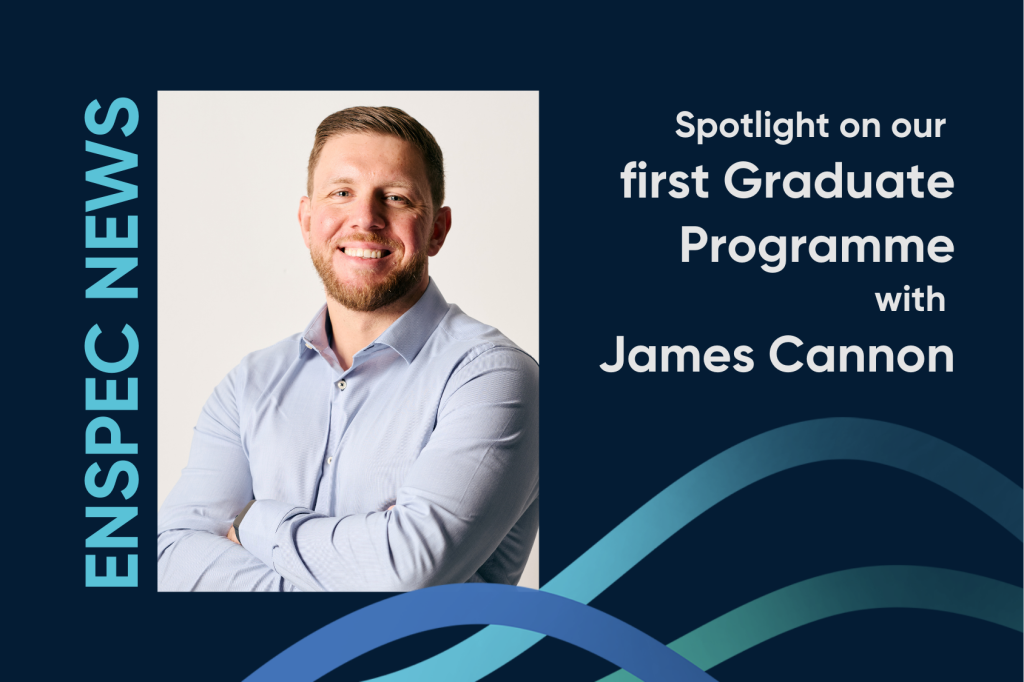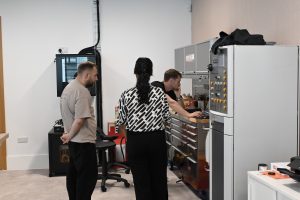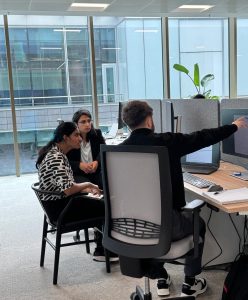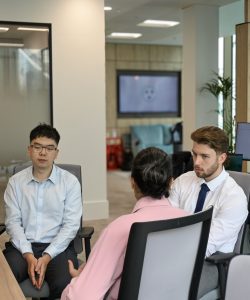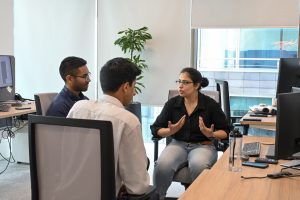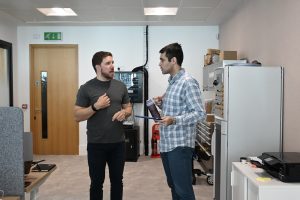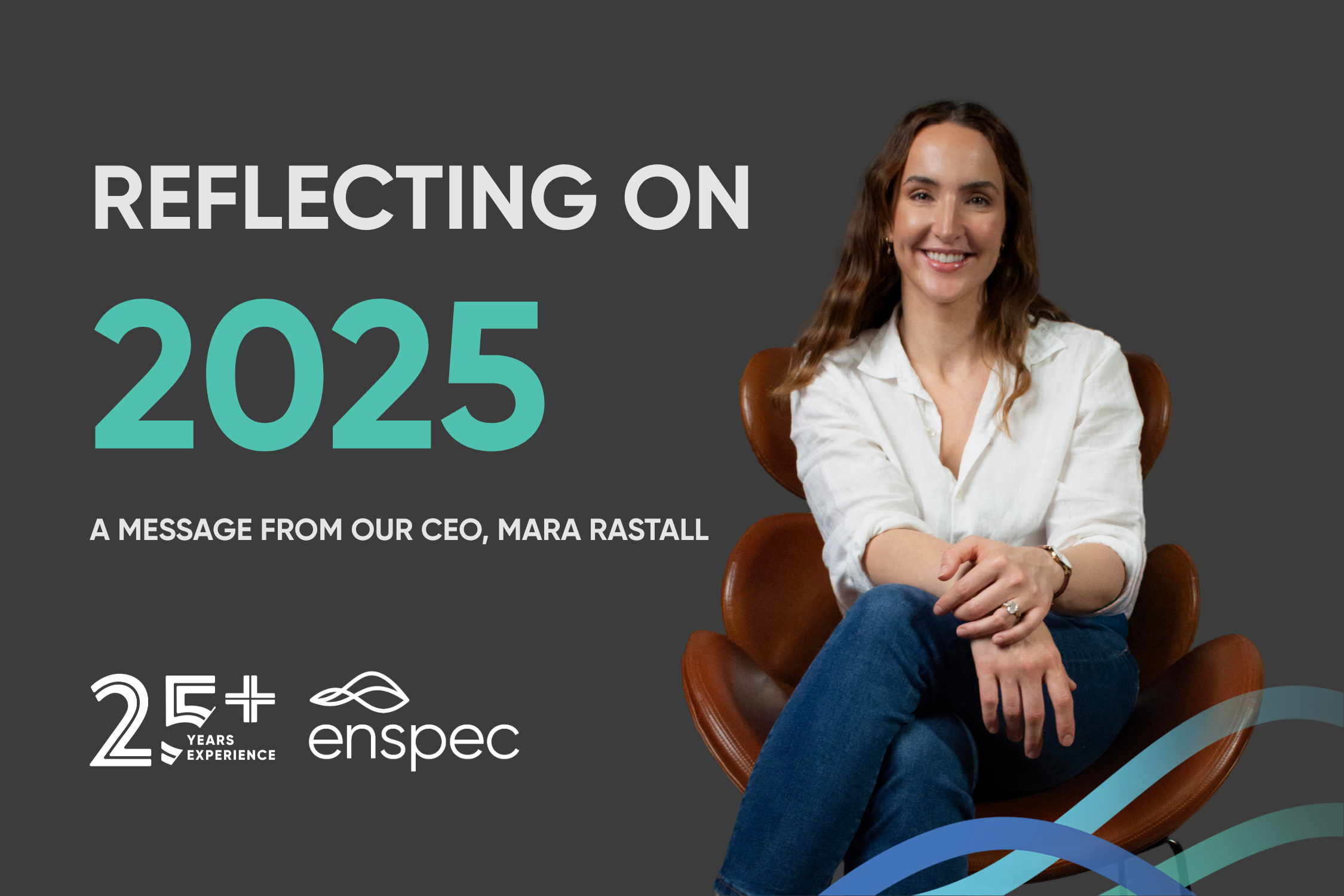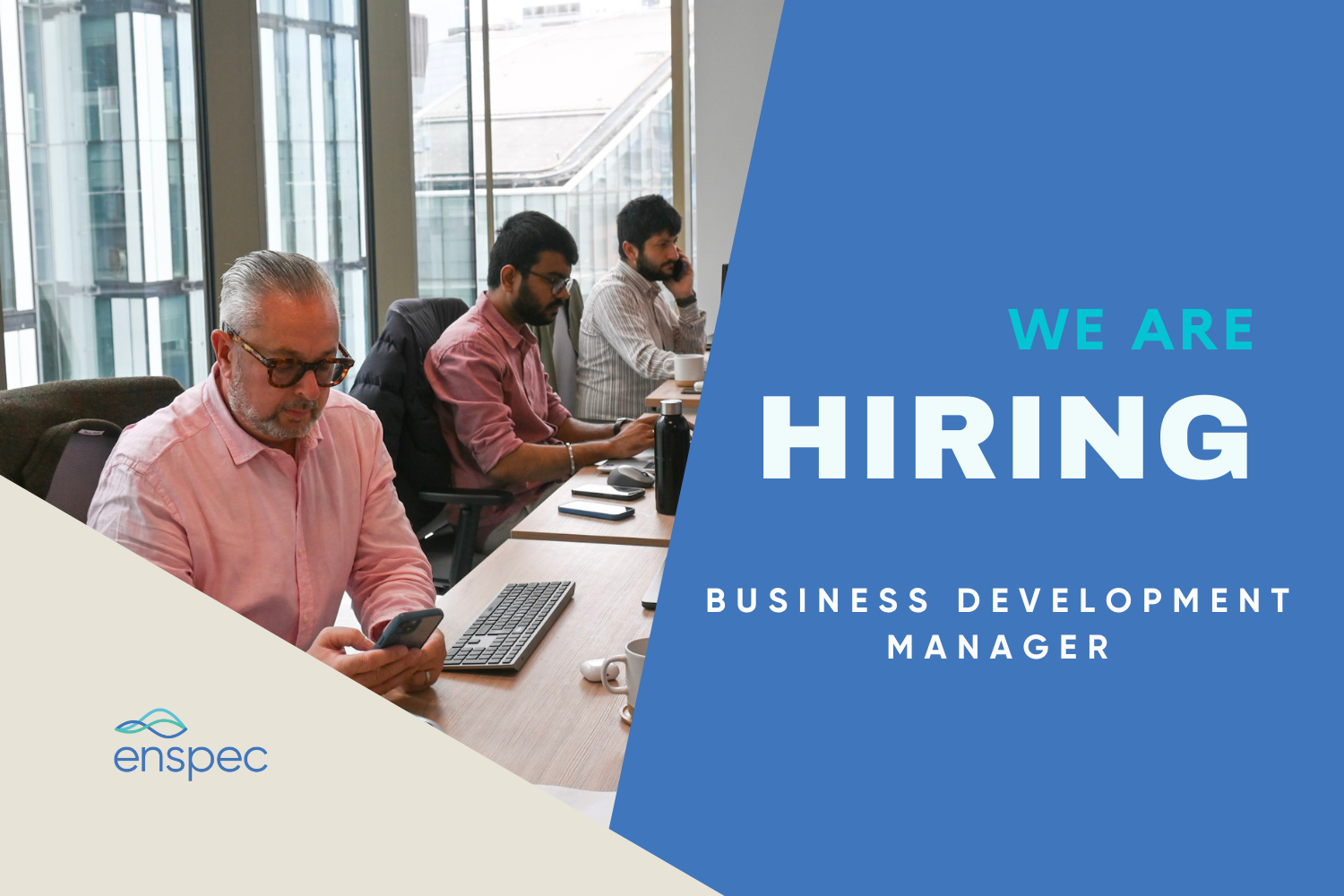We sat down with Senior Talent Partner James Cannon to discuss Enspec’s inaugural 2025 Graduate Programme and what launching it means for the company’s role within the wider electrical engineering industry.
Could you explain your role as Enspec’s Senior Talent Partner, James?
Of course. I’d classify it as the whole employee journey encompassing recruitment, onboarding, performance progression, development and offboarding also. I spent seven years in technical recruitment, have a Masters in Human Resources and joined Enspec 18 months ago in a hybrid role of recruitment and HR.
While I don’t think my role is unique in electrical engineering, I do have a bit of a unique background in terms of the fact that I did technical recruitments for so long. I’m not an electrical engineer but I can have conversations and explain the context around the whole industry.
When did Enspec’s Graduate Programme 2025 begin?
Well this is our first ever graduate programme. The process started in 2024. The graduate programme became my absolute focus as we knew we wanted our first programme and intake to go absolutely right. I’d been to a big graduate recruitment day myself in 2012 when I left university, but I’d never actually set a whole programme up.
The process has involved me going out to multiple universities and careers fairs to build strong partnerships, networks and connections. We visited universities with a strong reputation for electrical engineering degrees, including Manchester, Liverpool, Sheffield, Leeds, Lancaster, and Nottingham. Immediately after that we got into the design phase of the whole process.
What was your gauge on the students general appetite for careers in electrical engineering?
There were definitely a select few universities where graduates expressed a lot of interest. Many graduates are still exploring their career options and discovering where their skills fit best. We discovered that they asked good questions, showing curiosity towards the industry and Enspec. Certain people’s interest really shined through at the time and they backed it up by remaining in contact with more regular follow-ups.
I believe the programme received more than 400 individual applications?
That’s right. I’d asked for a CV, cover letter and a creative way of their choice to apply. It was quite a challenge to sift through but we adopted a red, amber green rating system with green being a shortlist potential. They had to be fit for the team and we got it down to a shortlist of 40 graduates. Following further process we whittled it down to 13 for the interview stage and will be announcing the intake and how many candidates join later this year.
What will you be looking for in a candidate during the interview process?
A good basic understanding of electrical engineering is important of course, which candidates at this stage have. A lot of what we are looking for is attitude, how candidates apply themselves and how we feel they will fit with the company and our team.
There will be a technical interview with our head of engineering and the Director of Consultancy. A more informal ‘get to know you’ type of interview with our exec assistant and HR Finance Coordinator. A group session discussion with the engineering team followed by another with our power system consultancy team to see how they engage and how curious they are. And finally a personality session which will be an interesting tool for us if they do join as we’ll learn how best to manage certain individuals.
What’s your take on the current engineering talent pool at entry level?
Launching the graduate programme is an important step for us as we are learning about students and the universities in the UK where they are graduating from. What we do know for sure is that we currently receive a lot of applications to join Enspec from overseas. There is a lot of demand in that space.
One of our aims with the graduate programme is helping to future-proof the industry. Apprenticeships, internships and placements and now the graduate programme are an essential part of our recruitment strategy. Sometimes you need an engineer who can do something very particular that only comes from experience. But what we are looking to create is a strong bank of junior engineers who can work with our senior principal engineers and become the engineers we need going forward. We intend to be a conveyor belt for new talent entering the industry.
And how competitive is recruiting from a company perspective?
It’s certainly a competition. Lots of companies are after good engineers and are having to buy high from overseas, visas etc… simply because the talent demand is there.
There are a lot of excellent engineers out there and they are in demand, so I find that you have to strike while the iron is hot. Even though we might not have a live role, it’s always worthwhile speaking to good engineers because even if they don’t join us now, we might have started good conversations and a relationship that progresses at some point in the future. At Enspec we push ourselves as an employer of choice. We are an established technical leader in the industry and will remain in that position. But we also are well aware of how many good companies there are.
What’s your ambition for Enspec’s Graduate Programme?
My plan is to grow our graduate programme every year. This year we might take on two graduates for our first intake. Next year more will join and not necessarily just roles in engineering. We are a growing company and our headcount will organically grow with this. As I said before, I want to build a talent pipeline. It’s so important as a lot of value will be found from technically capable graduates who are eager to grow with us as a company.
